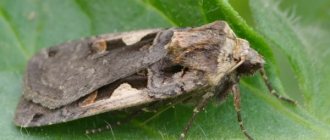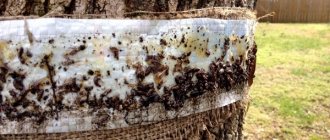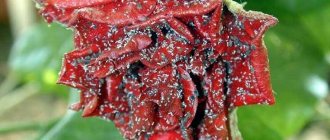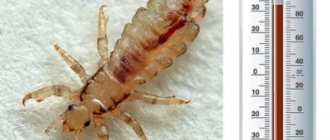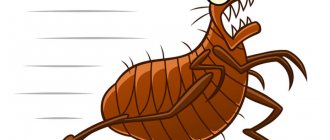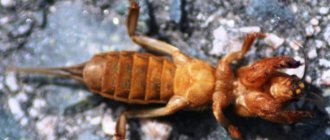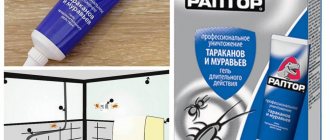Fumigants and repellents
Repellents and fumigants are chemical agents. Fumigants are divided into electrical and pyrotechnic.
Electric fumigators are devices that run on electricity. Repellent components are liquid or plates that, when heated, release chemicals that mosquitoes do not like. Manufacturers promise that after an hour there will not be a single insect left in the room with the fumigator turned on.
Advantages of the fumigator:
- No contact with skin;
- Ease of use;
- Availability;
- Low price;
- There are no obvious negative effects on health.
Flaws:
- Short service life;
- Irritating strong odor;
- Cannot be used in a home with children or pregnant women;
- Headache and allergies may occur.
If mosquitoes are not afraid of the fumigator, you may have bought a fake or it is broken. In small doses, fumigants repel insects, but in large doses they kill.
Pyrotechnics are plates that need to be set on fire. Spirals are used in the yard, on the site, during recreation. If they are used in the home, they may cause headaches.
Most mosquito repellents contain diethyl phthalate, which is effective against insects but is toxic. When using them, you must follow the rules and safety measures.
- The repellent must be applied according to the rules recommended by the manufacturer.
- Lotions and creams are intended for application to the skin and last for an hour and a half.
- A safe repellent is a pencil. Cases of an allergic reaction are rare, but the smell is unpleasant.
- Bracelets soaked in natural oils are one of the safest ways to repel mosquitoes.
- Scented candles will repel insects; mosquitoes do not like their smell; they can be used at home or outdoors.
What repels mosquitoes
If you study the “weak points of mosquitoes”, you won’t be afraid of their bites. In the hot heat, insects are inactive; the threat arises in the evening. Closed clothing does not always save you, and it is inappropriate to wear it in the summer. There are a number of effective products on sale that provide reliable protection for the skin. No less popular are folk remedies that also protect people from mosquito bites. Mosquito protection includes the following types of products:
- Repellents based on DEET. These are ointments, aerosols and creams with diethytoluamide, which are applied to clothing and bare areas of the body (face, hands) to repel insects with a pungent odor. Advantages: sustainable results, reliable protection, affordable price, wide range. Disadvantages: risk of side effects, children under 4 years of age.
- Electric fumigators. This is a special device into which aromatic plates impregnated with insecticide are inserted. An electric element heats the plate, and substances harmful to mosquitoes evaporate. Some models of fumigators instead of plates provide for the evaporation of a liquid insecticide. Advantages: fast action, access to sale. Disadvantage: unpleasant, pungent odor, which causes dizziness and nausea.
- Lamps. Insects flock to bright light, where a trap awaits them, for example, adhesive tape impregnated with a poisonous substance - an insecticide. There are several modifications of such lamps, the operating principle is identical. Advantages: high efficiency, wide range of models. Disadvantages: none.
- Mosquito traps. The simplest and most affordable option is adhesive tape containing substances attractive to blood suckers. Flocking to the strip, the bloodsuckers stick and die. Advantages: affordable price, ability to make a trap with your own hands. Disadvantages: the device needs to be changed regularly; it does not look aesthetically pleasing indoors.
- Ultrasonic repellers. The principle of operation is the propagation of ultrasonic waves, inaccessible to human perception, but destructive to insects. Advantages: 100% result, accessibility and simplicity of the method. Disadvantages: time consuming setting of the required frequency, high price.
- Folk remedies. This is a budget option on how to get rid of bloodsuckers. For example, coniferous aromas, the smells of geranium, bird cherry, elderberry, wormwood, and citrus fruits (tangerine, lemon, orange) repel pests. More complex recipes can be used. Advantages: availability, price. Disadvantage: selective effect.
Ultrasonic repellers
Ultrasound against mosquitoes has been used recently. The operating principle of the devices is based on ultrasonic waves. Are mosquitoes afraid of ultrasound? The opinions of scientists are divided; 100% effectiveness has not been proven. But, some models really work. Devices that are plugged into the network, battery-powered, and portable devices are sold.
When purchasing a device, keep in mind that ultrasound works at a distance of up to 5 meters if it is a stationary model and up to two meters for portable models.
Ultrasound is not dangerous for humans, since we cannot hear it. What frequency are mosquitoes afraid of? The creators say that bloodsuckers cannot withstand a frequency of 30 kHz. And the devices are produced with a floating frequency, from 4 to 40 kHz. It is believed that mosquitoes are afraid of the sound that imitates the flight of dragonflies, and this is 30 kHz.
Mosquitoes and midges are afraid of certain sounds!
Industry experts say sound can scare away the flying bloodsuckers. And it doesn’t have to be ultrasound. Some scientists even argue that it is completely useless in the fight against midges. However, there is a way out. There is a sound that frightens mosquitoes. It is already recorded in the mobile application, which is available for download. The software runs the sounds:
- Predators for whom mosquitoes become a source of food.
- Invisible to humans. There are as many as five frequency ranges that a person cannot pick up, but a mosquito will be afraid of.
No sprays! By recording the special sounds of mosquito predators on your smartphone, you can effectively protect yourself from them.
The developers are still conducting research on this topic, since more than three thousand species of blood-sucking insects live on earth, each of which has its own irritants. There is also an apparatus/device on the market that emits a cacophony of sounds—signals of danger to insects. The device is plugged into a power outlet, it can also be powered by batteries, and the effect is quite good.
Previous post How long does a mosquito live: male or female after a bite?
Next entry Centipede mosquito - species characteristics of the genus Tipulidae
Traps
The principle of operation of traps is to attract insects and destroy them. The bait for attraction can be one or several in a complex. Gas, heat, and light act as baits. Mosquitoes are not afraid of light and fly towards the heat emitted by the lamp. In general, bloodsuckers do not care about light or darkness; they orient themselves using not only the organ of vision.
Gas traps imitate human breathing; insects sense gas at a distance of up to 50 meters and rush to the device.
Propane exterminators are used on site. H20 traps can be used indoors and outdoors. The disadvantage of gas devices is the regular purchase of gas cylinders.
Electric traps with a lamp can be used outdoors and indoors, but due to their high price they are not in high demand. Devices with a fan or models that emit carbon dioxide are effective.
Water traps are effective in the home and yard. They are equipped with a special container where dead insects are disposed of. Are mosquitoes afraid of water? No, they lay eggs in water. But adults drown in liquid. Periodically you need to add and change water.
Light traps are inexpensive, but are ineffective if it is an ultraviolet lamp. Mosquitoes fly towards heat, not light. It’s good if, along with light, the device produces heat.
How to kick guests out of a room, mosquito repellent odors
If a mosquito does not land on the skin lubricated with the product, it will not let you rest by squeaking.
Ways to expel incoming mosquitoes:
1). Insects will die or fly out when they smell the smoke of camphor - it needs to be poured onto a heated frying pan. You can also drop 3-5 drops of a pharmaceutical product with camphor into boiling water.
2). Essential oils that repel mosquitoes:
- tea tree;
- eucalyptus;
- carnation;
- thyme;
- geranium;
- lavender.
These oils are added to an aroma lamp, which stands by the window, or napkins are moistened in a mixture of oils and laid out in the rooms.
3). Spray the garlic infusion. Place the head in a glass of water, cook for 5 minutes.
4). Drizzle with lavender oil.
5). Make duct tape. The paper tape is smeared with gelatin or starch glue and sprinkled with crumbled basil or bird cherry leaves. Change the tape every other day.
What are mosquitoes afraid of - folk remedies at home
What smell are mosquitoes afraid of?
Folk remedies are effective if you know what smells mosquitoes, flies, midges, ticks and other insects are afraid of. Many aromas are pleasant to humans, but unbearable to bloodsuckers.
In a house or apartment, mosquitoes are afraid of the smell of certain plants.
- Elder. Finely chop the leaves and place them in containers throughout the apartment. When the leaves dry out, you need to replace them with fresh ones.
- Bird cherry. Mosquitoes will be repelled by bouquets of fragrant branches arranged in vases.
- Geranium. Well repels many types of insects.
- Conifers. You can use cones and tree branches.
- Fish fat. You can coat exposed skin with it; insects will not bite, since the smell is unpleasant to them.
- Soy sauce. If you pour the sauce into a cup and place it near the bed, protection from bloodsuckers is provided.
- Smoke. An easy way to repel insects at a picnic is to light a fire. Mosquitoes are afraid of smoke. Why? It's all about the strong, unpleasant smell for them. If you throw spruce branches into the fire, mosquitoes will be even more afraid of such smoke.
How to fight mosquitoes at home
Vanillin
Mosquitoes are afraid of the smell of vanillin because the aroma does not allow them to smell a person. You can use vanilla to make a mosquito repellent spray or cream. For one packet of vanillin, take a liter of water and mix the ingredients. Using a spray bottle, apply the product to skin and clothing.
Add vanillin powder to the baby cream, mix and apply to exposed skin. This method of protection is suitable for children.
What essential oils are mosquitoes afraid of?
Essential oil is a good way to protect yourself from pest bites. It can be used outdoors and at home. A few drops of oil should be applied to the points where the pulse beats.
Do not apply essential oil to clothing; it will leave greasy marks on the fabric.
What essential oils are mosquitoes afraid of? They don't like the smell:
- Lavender;
- Eucalyptus;
- Geraniums;
- Carnations;
- Citronella;
- Anise;
- Camphor oil.
To protect against bites, add essential oil to the cream and lubricate the skin. In this case, the risk of allergies is minimal.
For people with sensitive skin, the method with essential oils is not recommended.
Mosquitoes are also afraid of the smell of “Star”. Before using the balm, do a skin sensitivity test.
An aroma lamp will save you from mosquito attacks at night if you add a few drops of essential oil.
Ammonia
Are mosquitoes afraid of alcohol? Yes, because it has a pungent odor, especially ammonia. Soak a cloth in alcohol and wipe the window sills, window frames, and doors. A person will stop smelling after a few minutes, but for insects this is a real obstacle.
Garlic
Mosquitoes are afraid of the smell of garlic. You can prepare a spray or balm based on it. To prepare the spray, take a head of garlic, add a glass of water and cook for 5 minutes. Balm is crushed garlic and essential oil. It is important that the balm does not get on the mucous membranes or in the eyes.
Vinegar
The smell of vinegar repels bloodsuckers; they are afraid of it. Spray your home. Mix equal amounts of water and apple cider vinegar and pour the mixture into a spray bottle. To enhance the effect, add a drop of eucalyptus essential oil.
What to do if you've already been bitten
- A solution made with soda can help get rid of itching. Recipe: dilute half a teaspoon of baking soda in a glass of warm water. A pale pink mixture based on potassium permanganate is also considered an effective solution.
- Kefir and yogurt are excellent remedies for relieving discomfort. Apply it to reddened areas of the skin and the itching will go away instantly.
- A well-known method from childhood is to apply a leaf of plantain, parsley, bird cherry, or mint to the bite site; before the procedure, you need to crush the leaves a little.
- “Star” is a balm that will help in any trouble, a mosquito bite is no exception. Apply it to the affected area of the body and the tooth will go away.
- Another recipe is based on essential oil. You need to dilute five drops of any essential oil with twenty-five milliliters of oil (apricot kernel or almond). Apply the product to the bite area.
There are a very large number of different effective methods of mosquito control. Everyone will find a suitable option for preventing insect bites. Also, do not get upset or panic if you do become a victim of a mosquito bite. This is not scary, since modern and ancient folk methods will provide everyone with effective assistance in healing their wounds.
Balm “Star”
This remedy is available in many homes, and it is recommended to use it not only according to the instructions. By applying the balm behind your ears or on your wrists, you can protect yourself from mosquito bites for a long time.
To get rid of bloodsuckers indoors, just boil 2 glasses of water in a saucepan and add a few grams of the product. After boiling water for 5-7 minutes, there will be no trace of mosquitoes in the house. Applying the balm is not recommended for people prone to allergies and children under 5 years of age.
Growing plants such as lavender, cloves, mint, geranium, marigolds and daisies in front of windows or in the garden will help cope with annoying mosquitoes and midges. It is also recommended to decorate the interior, veranda or terrace with bouquets of these flowers and herbs. Many insects are afraid of the aroma of bird cherry, elderberry, tomatoes, basil or garlic in the garden, and mosquitoes are no exception.
When relaxing in nature, it is best to throw spruce and pine branches into the fire. Mosquitoes cannot tolerate the smell of smoke on its own, but in combination with pine needles the effect will be amazing
